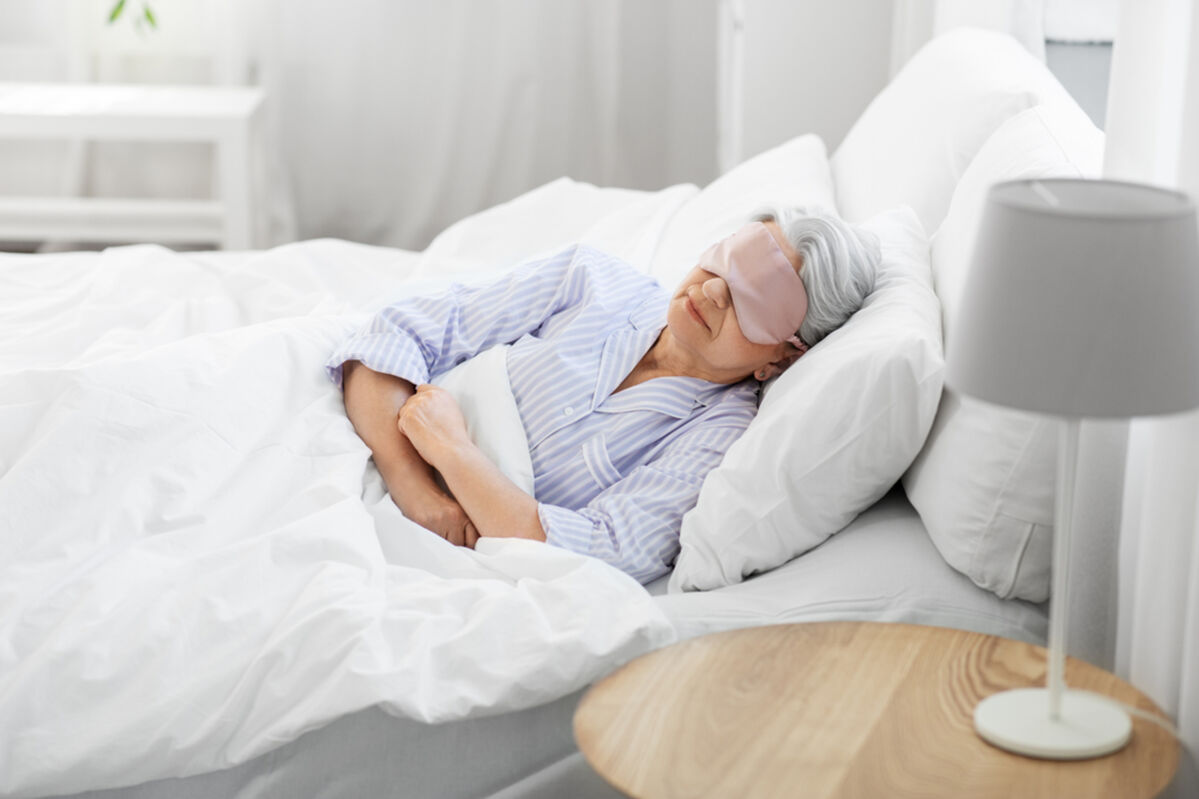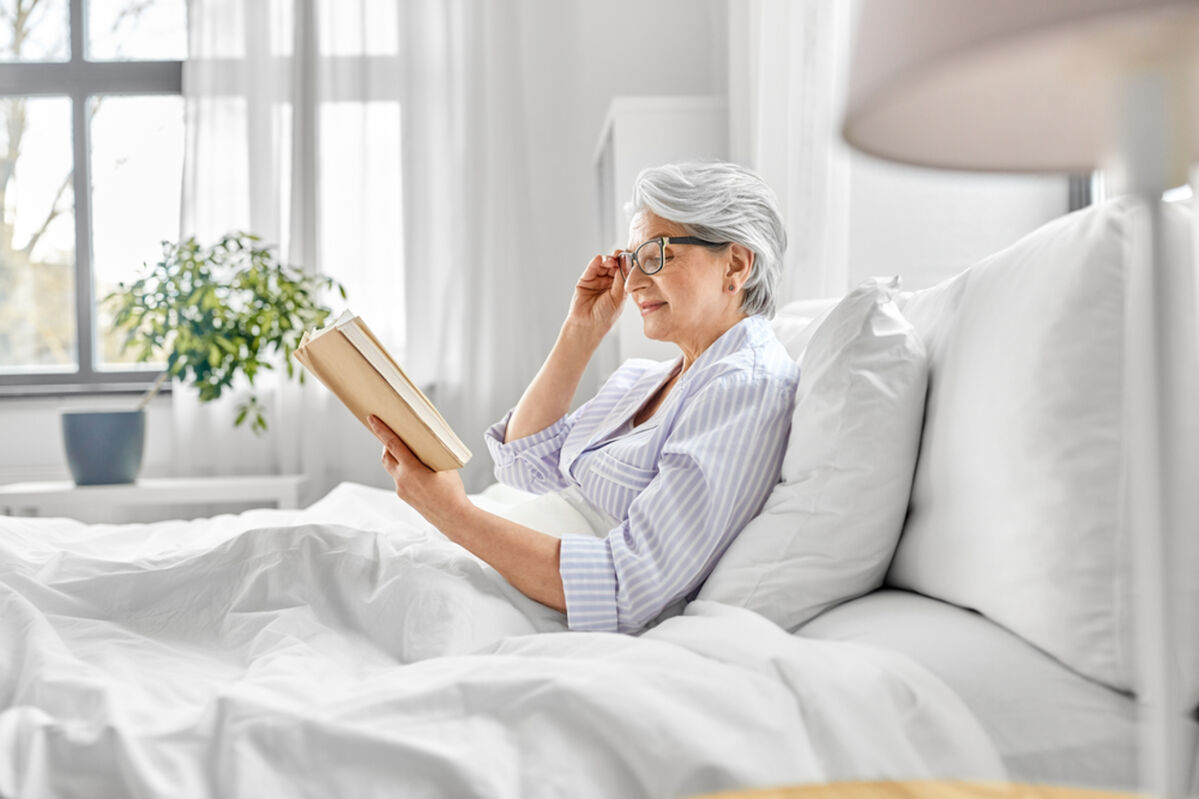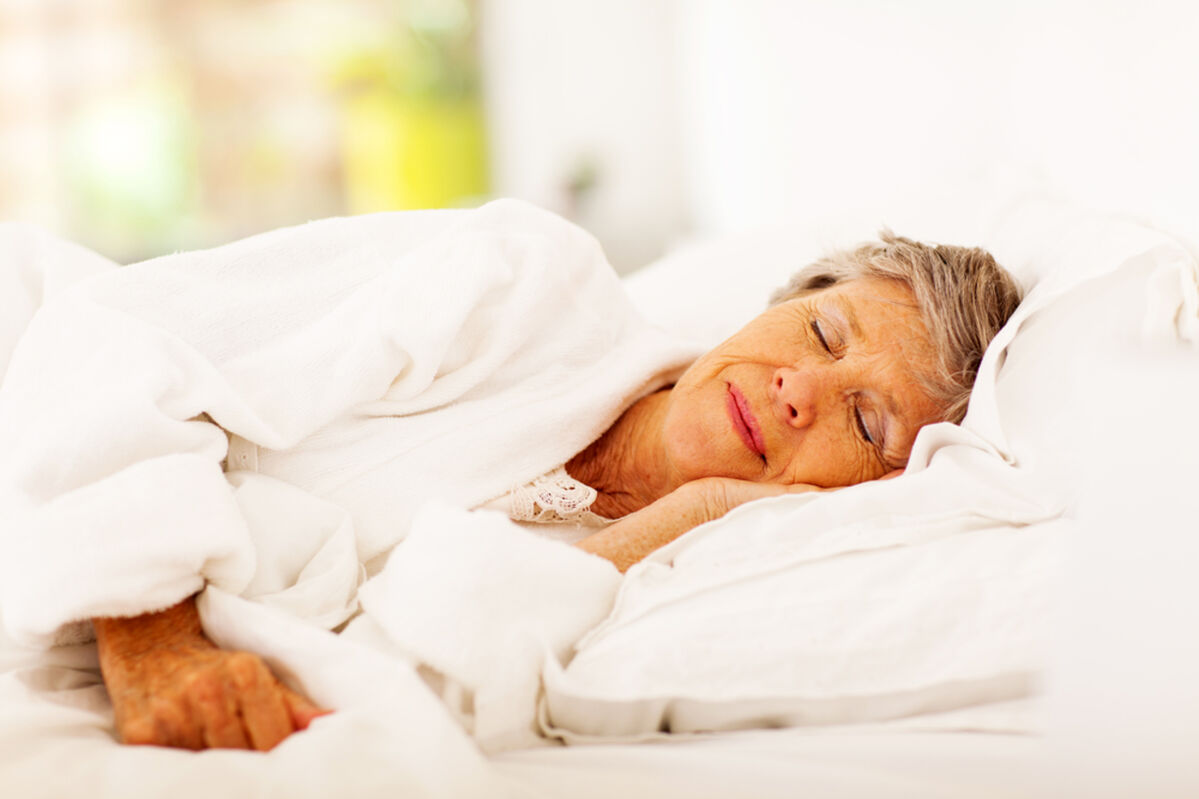A healthy night-time routine for older people

The average person can spend around 26 years asleep, which is almost a quarter of your life, so you want to ensure it is as restful, peaceful and enjoyable as possible. A plethora of factors can disrupt our sleep, including caffeine, electronics, a disrupted routine and even mobility problems that may require you to use aids like stairlifts and homelifts. You might find yourself asking what the benefits of getting a good night’s sleep are; see some of the best reasons below.
Benefits of getting a good night’s sleep:
- Improves attention and concentration
- Helps you maintain a healthy lifestyle
- Keeps your immune system strong
- Can help reduce stress levels
- Keeps your mind positive and engaged
In this guide, we go through some of the ways that you can make sure your sleeping routine is working the best it can, with some top tips on how to maximise your sleep and prepare your body and mind properly for bedtime.
Make sure you have a consistent bedtime
A consistent bedtime is one of the best ways to ensure a great night’s sleep. Depending on your lifestyle, try to set a time that you want to be in bed every night, which could be as early as 7 pm or as late as 11 pm. Consistency is key. The simple act of making sure you are in bed by an opportune time means that your body and mind are relaxing, getting used to the routine and letting you know subconsciously when to wind down for the day.
Replace electronics with books

Electronics can often work their way into our beds or the bedroom, but it is important to try and avoid these where possible, as they can be a massive disruption to sleep due to the blue light they emit. One of the best ways to try and keep electronics at bay is to have a bedtime ban, which is a time of day to step away from the likes of your phone, iPad or TV and instead pick up a book or a craft.
Tempur recently wrote an article about the benefits of reading before bed, and the following conclusion was made: “So, is reading in bed any better for you? The short answer, thankfully for many of us, is yes! Reading helps put your consciousness on another plane, which will induce sleep. It helps you move into a fictional world, easing the tension and helping you relax.”
Cut out caffeine in the evening
We all know that caffeine is a massive contributor to increased energy levels, boosting brain function and keeping us active, but that isn’t something that you will want to experience before going to bed. In fact, drinking caffeine in any form after 3 pm can have a detrimental effect on your ability to unwind, switch off and get a good night’s sleep later that day. Tea, coffee, energy drinks and even some foods can have natural caffeine in them, so be wise with what you consume after 3 pm as this can still affect your body late into the night.
Sleep Education speaks a little more about the adverse effects of caffeine on the body when trying to sleep on their website, commenting: “Caffeine can have a disruptive effect on your sleep. The most obvious effect of the stimulant is that it can make it hard for you to fall asleep. One study also found that caffeine can delay the timing of your body clock. These effects will reduce your total sleep time. Caffeine also can reduce the amount of deep sleep that you enjoy.”
Make your bedroom a relaxing space to sleep

With almost 26 years of your life spent in the bedroom, you want to make sure it is a tranquil and peaceful space that you feel comfortable and relaxed in; otherwise, you’re not going to feel a similar way when you try and fall asleep at night.
Keeping your sleeping space clear is one of the best ways to ensure you feel comfortable and stress-free in the night, so try and rid your sleeping area of all clutter, hang any stray clothing back in the cupboard and make sure you have suitable black-out curtains – these are all simple tasks to undertake that could return a great reward. Looking for some home deco inspiration to help you revamp your bedroom? Read our guide to the best home improvement shows to watch in 2023.
Below is an example nighttime routine that you could choose to follow.
- 6 pm – Have dinner
- 7 pm – Relax and watch your favourite TV show
- 8 pm – Step away from the screen, have a shower or bath and get ready for bed
- 8:30 pm – Get into bed and read a book
- 9 pm – Sleep
If you’re looking to try and improve your sleep, hopefully, this guide has given you some ideas on making sure your sleep is as good as it can be. For more information and guides like this, then make sure you head to our blog.
